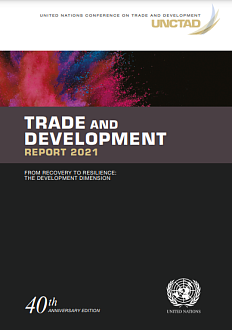In this publication, Accenture studies how the oil and gas industry fundamentals are changing as energy systems are rapidly becoming decarbonized.
In an era of rapid change, energy companies will continue to face multiple challenges. But while disruption increases risk, it also creates opportunity. Uncertainties can be offset by the reputational appeal to investors, consumers, and employees of proactively addressing the decarbonization of the energy system.
The Roscongress Foundation presents the salient points of the publication accompanied by fragments of broadcasts of relevant panel discussions from the business programme of international events held by the Roscongress Foundation.
Digital technologies, the drive for greener energy, and the demand for more convenient, personalized services place national mandates and shareholder value at risk. Oil companies are compelled to re-evaluate future commodity prices and traditional energy value chains.
Accenture sees four key game-changers for the energy industry.
1. Decarbonized energy systems. With uneven or declining hydrocarbon use in many markets, economic growth and gross domestic product (GDP) are becoming disconnected from hydrocarbon demand.
2. Energy efficiency. Investments in energy efficiency are helping to contain emissions and energy demandand are now seen as fundamental to decarbonize energy systems.
3. The new energy consumer. With consumer demand for ever-more seamless, connected, and personalized experiences, oil and gas companies need to be more sensitive to environmental concerns.
4. Post digital reality. Digital is changing an energy industry competitive landscape, with multiple new players appearing. So, oil companies will have to rethink energy value chains.
Many oil companies are already on a transition journey from «oil» to «energy,» redefining their purpose and focusing on new businesses. However, as multiple new players are appearing in the industry, offering improvements and alternatives to the energy consumer, incumbents need to act faster to succeed in the competition.
To speed up the transformation, oil and gas companies need to embrace next-generation digital technologies and build the workforce of the future, while looking after the interests of investors and shareholders.
As oil and gas companies move to making data-driven decisions at pace, emerging digital technologies and the new possibilities they unlock offer them real opportunities to transform and start reimagining their entire industry. Key among these are distributed ledger technology/blockchain; artificial intelligence (AI); extended reality (XR); and quantum computing. Accenture calls this key quartet of technologies DARQ. While each is powerful individually, collectively DARQ technologies will change how entire industries look and work, including energy.

Retooling the future energy company will require new skills to equip an efficient modern workforce. Heavily dependent on engineering skills, oil and gas is a mature industry where the average employee is more likely to be older. Whats more, Accenture research reveals that many recent college graduates dont want to work for energy companies because of sensitivity to environmental issues.
Reshaping the oil and gas industry requires companies to pivot their portfolios to the new in a timely wayin other words, growing new businesses while keeping the current portfolio profitable and agile.
According to Accenture, the transition to a new paradigm can be achieved by optimizing the balance between the following:
· centralization and decentralization;
· fixed assets and pay-as-you-go;
· standard and bespoke;
· operator and entrepreneur;
· human and machine-based capabilities.
Accenture sees that this can primarily be achieved via adopting new processes and models supported by digital technologies and ecosystems. Efficiencies are thus maximized through the energy value chain while capitalizing on emerging opportunities in «the new» by leveraging digital to meet the demands of the changing energy consumer.
For more information about possible ways to stabilize the economy during a pandemic, please see the StayHomeEconomy special section of the Roscongress information and analytical system, and the Power generation, Renewable energy sources, Environment, and Sustainable development sections about the fuel and energy complex and sustainable development.






